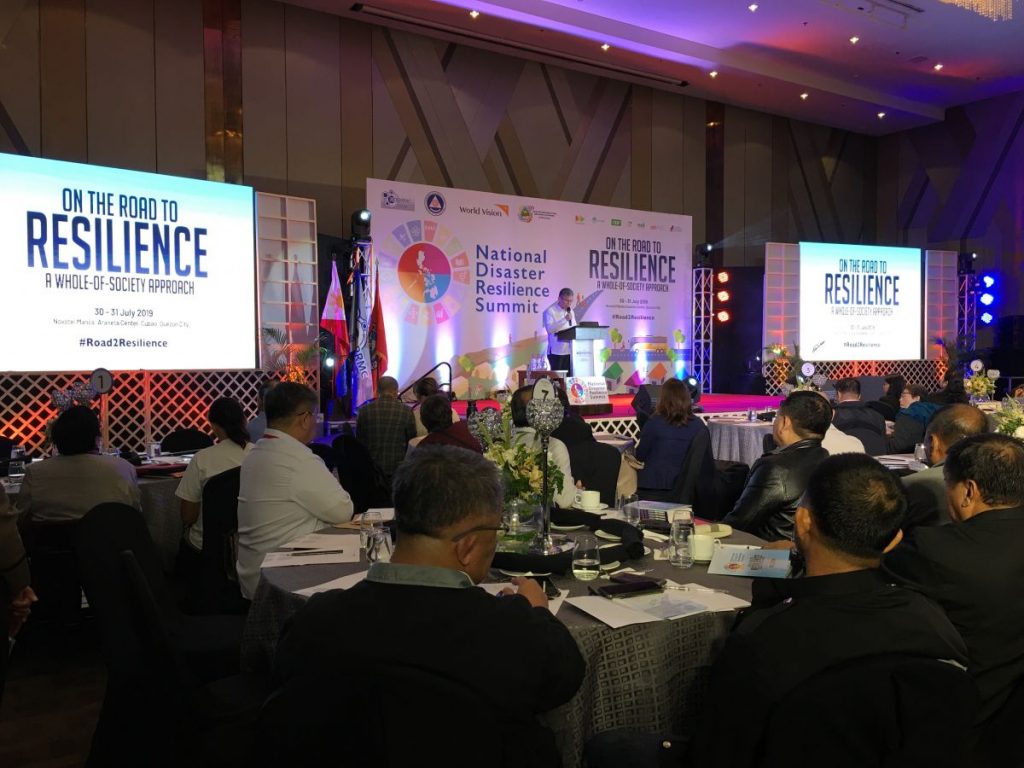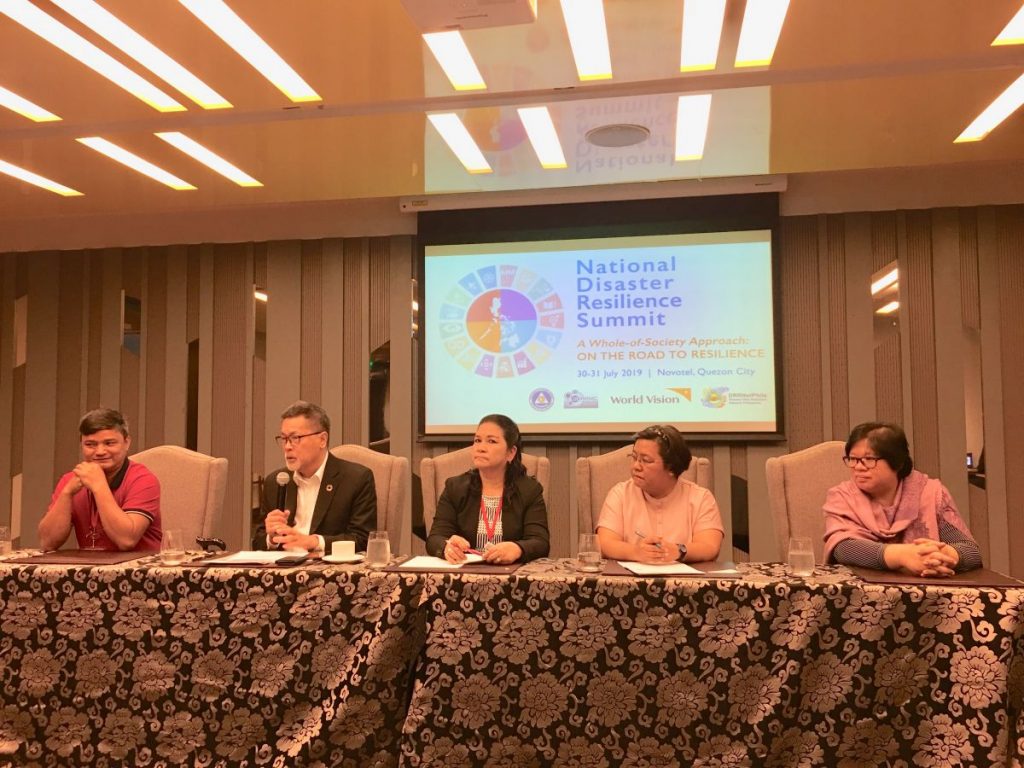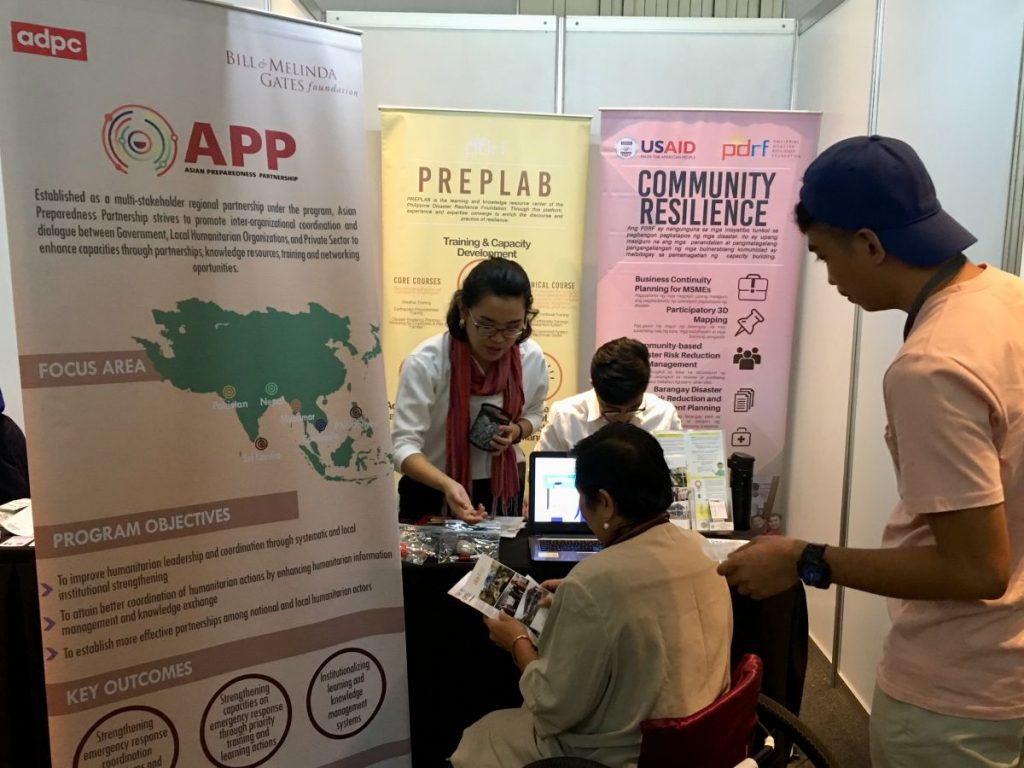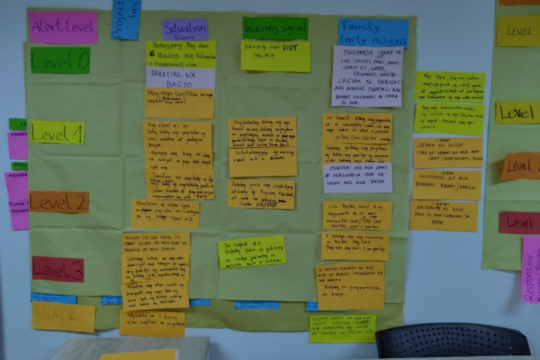PHILPREP supports the convening of the first ‘2019 National Summit on Disaster Resilience’ that focused on ensuring synergy among national and local development plans, and their coherence with international frameworks (such as SFDRR and SDGs).
More than 700 participants from national and local government units, private sector, civil society networks, academe, media, and local and international development partners attended the Summit held at the Novotel Hotel Manila, Quezon City in Metro Manila, Philippines on July 30 and 31, 2019. The event emphasized the need for whole-of-society approach in efforts towards national resilience. With common aspiration of leaving no one behind, the call was to place local communities at the heart of all development interventions. The two-day Summit was jointly organized by the National Disaster Risk Reduction and Management Council (NDRRMC), Office of Civil Defense (OCD), World Vision, and Disaster Risk Reduction Network (DRRNet) Philippines with support from PHILPREP. The Secretary of the Department of National Defense (DND) and Chairperson of NDRRMC, Secretary Delfin N. Lorenzana, served as the Guest of Honor.
The event provided a platform to discuss issues and challenges in the implementation of the Philippine DRRM System and the Climate Change Action (CCA) System. Innovations, strategies, and good practices were shared by various stakeholders in pursuing the Sendai Framework for Disaster Risk Reduction (SFDRR) and the Sustainable Development Goals (SDGs). Mechanisms for multi-stakeholder engagement in the implementation of local development plans were also discussed.

There were plenary presentations and working sessions in line with the four (4) Priorities for Action (PFA) of SFDRR namely:
(1) Understanding Disaster Risk
It was discussed that scientific data and indigenous knowledge must be used to generate appropriate interventions to reduce disaster risks. Aside from natural hazards, the country should also take a closer look into human-induced threats.
(2) Strengthening Disaster Risk Governance to Manage Disaster Risk
Leaders of select local government units and civil society organizations presented good practices in promoting resilience. Efforts in building greater coherence between local DRRM and CCA plans were also reviewed.
(3) Investing in Disaster Risk Reduction for Resilience
Various investment methods to reduce disaster risks were reported. Among these were national parametric insurance, risk financing, risk-informed public-private investments, and microfinance.
(4) Enhancing Disaster Preparedness for Effective Response and to “Build Back Better” in Recovery, Rehabilitation, and Reconstruction
Panel members brought forward the importance of having clear understanding of disaster risks in relation to developing appropriate mitigation and preparedness measures. They underscored that while response and recovery efforts are important, national resilience is anchored on disaster mitigation and preparedness of local communities.
Ms. Loreine Dela Cruz, Executive Director of Center for Disaster Preparedness (CDP), underscored the importance of documenting good practices and lessons learned on the ground. She added that knowledge generation and dissemination would help humanitarian stakeholders to learn from each other and generate greater coherence in planning and implementation of development interventions.

Mr. Edwin Salonga, Program Manager in the Philippines of the Asian Disaster Preparedness Center (ADPC), stressed the commitment of ADPC in helping strengthen community resilience in the country. He emphasized the role of PHILPREP in further building on the gains derived from multi-stakeholder collaboration as regards disaster preparedness and response.
PHILPREP, the national chapter of APP in the Philippines, comprises of OCD, CDP, and PDRF.



